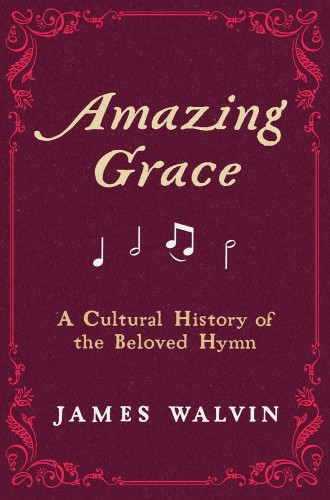Written by the oppressor, sung by the oppressed
James Walvin traces a beloved American hymn on its winding journey across racial divisions through the centuries.

Amazing Grace
A Cultural History of the Beloved Hymn
At a 2015 service in memory of the nine people shot and killed at the oldest Black church in the South, eulogist Barack Obama began to sing. Vested clergy behind him and thousands of mourners assembled on the floor in front of him stood and sang along. James Walvin, a British historian of slavery and the slave trade, presents this moment in Charlotte, North Carolina—when “Amazing Grace” was sung a cappella by a Black president of the United States more than 200 years after it was written by a pious British cleric and former master of slave ships—as an enduring spiritual artifact of America.
The Olney Hymns, a collection published by John Newton and William Cowper in 1779, contained the first printed version of what would become “Amazing Grace.” The hymn crossed the Atlantic to an America that seemed to be waiting for it. The new nation of outcasts, misfits, adventurers, and entrepreneurs was “an astonishingly religious society,” Walvin writes. Churches dotted the mostly rural landscape, and the congregations assembled within those churches were “enthusiastic about and widely committed to singing hymns.”
A former lead choirboy, Walvin writes with personal investment as he traces the tale of “Amazing Grace” on a winding journey across racial divisions and regional musical genres through the American centuries. Remarkable spiritual fervor and vocal vigor within early American churches ignited entrepreneurial engines that published, circulated, recorded, and broadcast religious music and devotional material in evolving print formats and eventually in the technologies that followed print. Perhaps most importantly, there was—and still is—the longing of a nation of mismatched immigrants and enslaved people for words of acceptance, security, and love.




